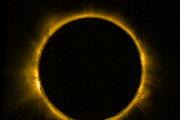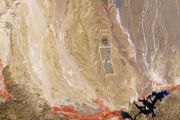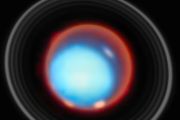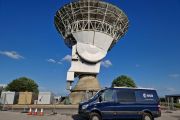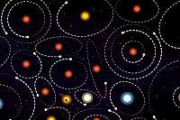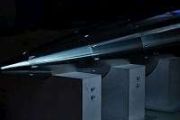
Copernical Team
Mars relay orbiter seen as backbone for future exploration
 NASA has set clear goals at Mars: search for evidence of ancient life, understand the planet's climate and geology, and prepare for human exploration. Those objectives depend on a robust link between spacecraft at Mars and mission teams on Earth, with every image and dataset traveling hundreds of millions of kilometers across interplanetary space. Rocket Lab positions its proposed Mars Telecommu
NASA has set clear goals at Mars: search for evidence of ancient life, understand the planet's climate and geology, and prepare for human exploration. Those objectives depend on a robust link between spacecraft at Mars and mission teams on Earth, with every image and dataset traveling hundreds of millions of kilometers across interplanetary space. Rocket Lab positions its proposed Mars Telecommu New tool could reduce collision risk for Earth-observation satellites
We're checking your connection to prevent automated abuse
A new concept for catching up with 3I/ATLAS
We're checking your connection to prevent automated abuse
Launching the first Ariane 6 with four boosters
 Video:
00:01:09
Video:
00:01:09
This first launch of the four-booster version of Ariane 6, operated by Arianespace, took 32 satellites for Amazon’s Leo constellation to low-Earth orbit. Liftoff occurred at 13:45 local time (16:45 GMT/17:45 CET) from Europe’s Spaceport in French Guiana, with separation of the last satellites occurring after 114 minutes.
Ariane 6 in its four-booster configuration, known as Ariane 64, doubles the rocket’s performance compared to the two-booster version that has flown five times including the inaugural flight in 2024. The P120C boosters used by Ariane 6 are one of the most powerful one-piece motors in production in the world.
Docking of Crew-12 to the International Space Station
 Video:
01:48:55
Video:
01:48:55
Watch the replay of the Crew-12 docking operations at the International Space Station (ISS).
On 14 February, a SpaceX Falcon 9 rocket lifted off from Space Launch Complex 40 at NASA’s Kennedy Space Center at 10:15 UTC (11:15 CET). Following this, the SpaceX Dragon spacecraft docked at the orbiting lab at 20:15 UTC (21:15 CET).
ESA astronaut Sophie Adenot is flying as mission specialist for the εpsilon mission. The other Crew-12 members are NASA astronauts Jessica Meir (commander) and Jack Hathaway (pilot), and Roscosmos cosmonaut Andrei Fedyaev (mission specialist).
NASA to let private company Vast visit space station for private mission in 2027
We're checking your connection to prevent automated abuse
Southern California sky is lit up by Valentine's Day SpaceX launch
We're checking your connection to prevent automated abuse
China tests AI satellite swarm for space-based computing
 China has advanced its vision for space-based computing with a satellite network that deploys 10 artificial intelligence models in orbit and demonstrates inter-satellite networking capabilities.
Developed by Zhejiang Lab in cooperation with international partners, the experimental space computing network is built around the Three-Body Computing Constellation, a planned fleet of more than 1
China has advanced its vision for space-based computing with a satellite network that deploys 10 artificial intelligence models in orbit and demonstrates inter-satellite networking capabilities.
Developed by Zhejiang Lab in cooperation with international partners, the experimental space computing network is built around the Three-Body Computing Constellation, a planned fleet of more than 1 Mexican Gxiba-1 CubeSat Starts Mission After Kibo Deployment
 On February 3, 2026, the Mexican CubeSat Gxiba-1 was deployed from the Japanese Experiment Module Kibo on the International Space Station, beginning its on orbit mission. The small satellite was released into space using the Kibo module's robotic arm as Earth passed in the background.
Gxiba-1 was built by a team from the Popular Autonomous University of the State of Puebla in Mexico after
On February 3, 2026, the Mexican CubeSat Gxiba-1 was deployed from the Japanese Experiment Module Kibo on the International Space Station, beginning its on orbit mission. The small satellite was released into space using the Kibo module's robotic arm as Earth passed in the background.
Gxiba-1 was built by a team from the Popular Autonomous University of the State of Puebla in Mexico after Mohe ground station boosts polar satellite data coverage
 For engineer Shi Shengpu and his colleagues, this Spring Festival will be their first spent at the Mohe Satellite Data Receiving Station of the China Remote Sensing Satellite Ground Station, which began operations on Dec 12 in Mohe, China's northernmost city in Heilongjiang province.
Developed by the Aerospace Information Research Institute of the Chinese Academy of Sciences, the Mohe faci
For engineer Shi Shengpu and his colleagues, this Spring Festival will be their first spent at the Mohe Satellite Data Receiving Station of the China Remote Sensing Satellite Ground Station, which began operations on Dec 12 in Mohe, China's northernmost city in Heilongjiang province.
Developed by the Aerospace Information Research Institute of the Chinese Academy of Sciences, the Mohe faci 






